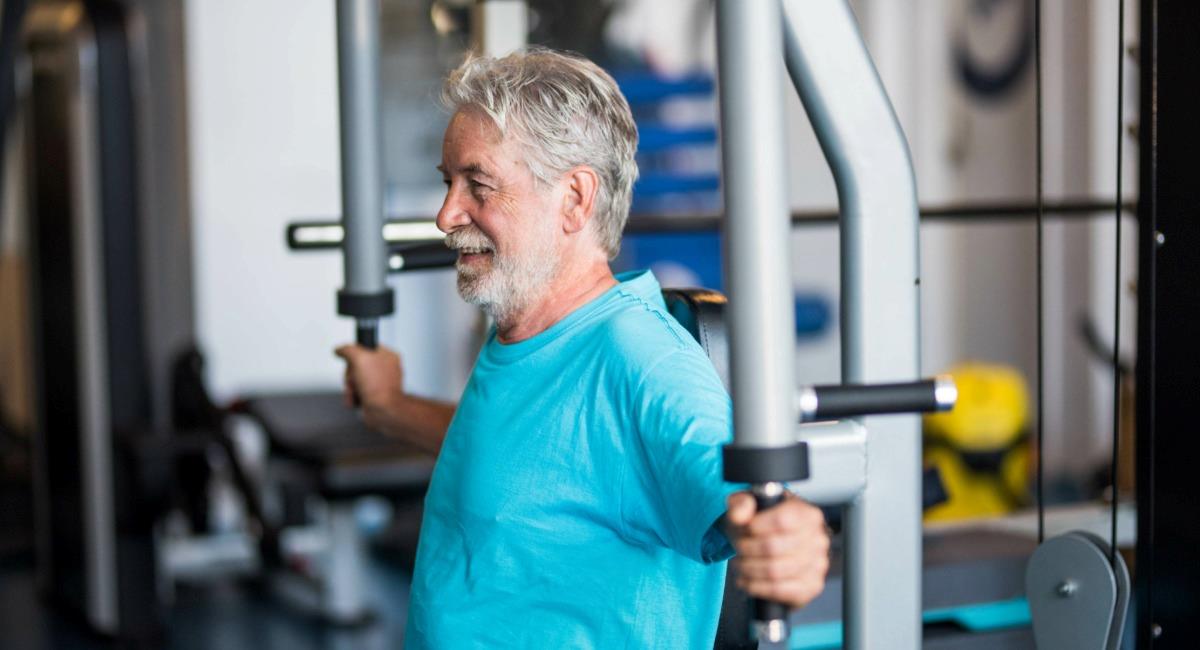“I think that’s why Movember is really important… [it helps] push past that stigma that you don’t have to be in this alone. You don’t have to hold back your emotions and pretend to be tough and strong.”—Brendan Burt, Mental Health Coach, Australian Unity
Key points
- Movember is a charity movement that raises awareness for men’s health. During the month of November, men are encouraged to grow a moustache and raise funds for mental health.
- When it comes to the signs of men’s mental wellbeing, the warning signs can be subtle. If someone is withdrawing or using expressing hopelessness, it may be time to check in and recommend some mental health support.
- If someone you know seems like they’re struggling, the ALEC (Ask, Listen, Encourage, Check in) model, developed by R U OK?, is a good way to start a conversation and show you care.
When Brendan Burt started participating in Movember in 2019, he was going through the darkest period of his life. Now, as a Mental Health Coach with Australian Unity, the former gym owner sees the same men’s mental health struggles playing out in those he speaks to—loneliness, isolation, silence and a devastating reluctance to seek help.
“I think the biggest mental health issue men face is isolation and loneliness, especially among the younger guys,” says Brendan. “There’s a connection through social media, but there’s a distance from real support and safe people or safe spaces for men to share their emotions.”
Men’s mental health statistics in Australia are sobering. One in five Australians aged 16–85 experienced a mental illness in the past 12 months, with suicide remaining one of the leading causes of death for men under 45, at rates three times higher than for women.
These aren’t just statistics—they’re fathers, brothers, mates and colleagues fighting battles we often can’t see, which is why awareness campaigns like Movember are so powerful in breaking down the mental health stigma in men. The “mo” serves as a natural conversation starter, breaking the ice about struggles with work, relationship breakdowns, financial pressures, or simply feeling overwhelmed by life’s expectations.

Why the moustache matters
It’s Jack Sandercock’s first year participating in Movember. “To be honest, one of the boys at the gym said we should do it,” says Jack, the 30-year-old owner of Elevated Strength & Conditioning, a gym in the Melbourne suburb of Strathmore. “Being the yes man that I am, I said ‘yes’. But once I started thinking about it—really thinking about it—I realised how much mental health awareness for men matters.”
Jack observes mental health struggles daily, lending an ear to many at his gym. “It’s a funny job because I end up being almost like a therapist. It’s really powerful when people share their struggles with me. If people have something to get off their chest, they feel comfortable enough to let it out.”
“I think that’s why Movember is really important,” reflects Brendan. “Or services like Beyond Blue, R U OK? and Lifeline—they help push past that stigma that you don’t have to be in this alone. You don’t have to hold back your emotions and pretend to be tough and strong.” That silence, he says, can come at a huge cost and it’s a lesson that Brendan wished he’d learnt sooner.
“When I was working through my own depression in 2019, I was also seeing a psychologist and taking medication,” says Brendan. However, his wife and family had no idea that he was going through so much pain. “I didn’t feel safe enough to express what I was going through because I was scared it would be used against me. I think a lot of men feel that same fear—that opening up will make things worse, or that they’ll be judged or misunderstood. Looking back, I wish I had been more open with the people around me, and it took years to learn how important that really is.”
But recognising when someone is struggling isn’t always straightforward. Men often mask their pain behind everyday behaviours that seem normal on the surface—making it crucial to know what changes to watch for in our mates, family members and colleagues.
“Guys are funny creatures,” says Jack. “Organising stuff is hard. No one wants to step out and make decisions.”
What are men’s mental health warning signs?
When it comes to the signs of mental health issues in men, the warning signs can be subtle. A friend might start drinking more than usual. Maybe he’s pulled out of your regular Thursday night basketball game or is quieter than usual on the group chat. His work performance might be slipping, or suddenly he’s always “too busy” to catch up.
“Withdrawal is a big one,” says Brendan. “If they’re someone who always goes to the gym or out for coffee meet-ups or walks—whatever it may be—and you start to see that drop away, it can be a sign that someone is struggling.”
Other warning signs, Brendan notes, include heightened irritability or language expressing hopelessness, such as “What’s the point?” or “What am I doing?”
“Sadly, the majority of people I talk to all share that same feeling about themselves. People have sort of convinced themselves that they no longer have purpose, that they no longer have anything worthwhile to give to those around them.”

How to check in on a friend
If you’re worried about someone, Brendan champions the R U OK? ALEC model as a practical framework anyone can use to help someone struggling. ALEC breaks down how to start a mental health conversation with a friend by using four simple steps:
- Ask: “It doesn’t have to be a big, dramatic, serious conversation,” explains Brendan. Instead, he recommends starting the conversation with a simple, “Hey, what’s going on? Are you okay?”
- Listen: The key, says Brendan, is to listen. “Don’t go in and try and fix anything. No fix-it mode, no judgement. Just literally listen.”
- Encourage action: Try to motivate them to take steps towards feeling better, such as being more social. This may also mean seeking professional help. “Speaking up is a huge part. I think more people would benefit from speaking to someone like a psychologist,” says Brendan.
- Check in: Follow up and let them know you’re still thinking of them. As Brendan says, “consistency is key”.
The beauty of this approach is its simplicity—you don’t need to have all the answers. You just need to care enough to start a mental health conversation. And once you’ve initiated that conversation, Brendan advises bridging the gap by moving from “Are you okay?” to “I’m here. Let’s work through this together”.
He also notes that many people ask if health insurance covers mental health, noting that some Australian Unity health insurance products cover psychology sessions and online mental health programs—for eligible members—like its MindStep program. “But having coverage means nothing if people don’t know about it or feel too ashamed to use it.”

The impact of exercise on men’s mental wellbeing
Strong personal relationships and a sense of purpose form part of the golden triangle of happiness, with Australian Unity Wellbeing Index research showing that people who achieve these report greater Real Wellbeing.
Both Brendan and Jack have found this connection and purpose at the gym. Both men also share a profound belief in the benefits that physical activity can have on our mental health and wellbeing.
Brendan, who ran a CrossFit gym before his career change, experienced its transformative power firsthand: “The gym had a huge impact on me. It’s a big reason why I was able to push through my depression. Everyone has a shared goal,” he reflects. “And the community is the biggest part.”
Jack agrees: “If someone can honestly tell me they don’t feel better after doing exercise—a walk, a run, a gym session—then okay, maybe it’s not for you. But I’d say 98 percent of people feel better.”
It was while battling depression that Brendan launched “Rovember” at his gym—combining rowing challenges with Movember fundraising. “We’d row kilometres for donations. If we raised $5,000, we’d row 500 kilometres as a team. We used it as an opportunity to open up conversations.”
Jack, meanwhile, is reimagining male connection beyond the pub. “Social connection that always involves alcohol can lead to mental health issues in their own way,” says Jack. “It can be super toxic. Same conversations, same stuff, and nothing changes.”
Instead, Jack has found other ways to connect, including Sunday morning group runs with some of the boys from the gym. “It’s just another way we can connect without going out drinking. We’re trying to find new ways to hang out, do things that are easy for everyone, which are valuable too.”

Beyond the moustache
“I love to complain about it because I hate having a moustache. However, when I complain, it starts a conversation, and then I have to explain why I have it,” says Brendan. Sometimes, that icebreaker is all someone needs to open up about what’s keeping them up at night.
Jack also describes his moustache as “pretty average.” But while his moustache might look awkward, it becomes a bridge to real conversations, transforming discomfort into connection.
The message of campaigns like Movember is clear: whether through a dodgy “mo”, a gym session, or simply asking “are you okay?”, every conversation you have with a friend about their mental health and wellbeing matters.


